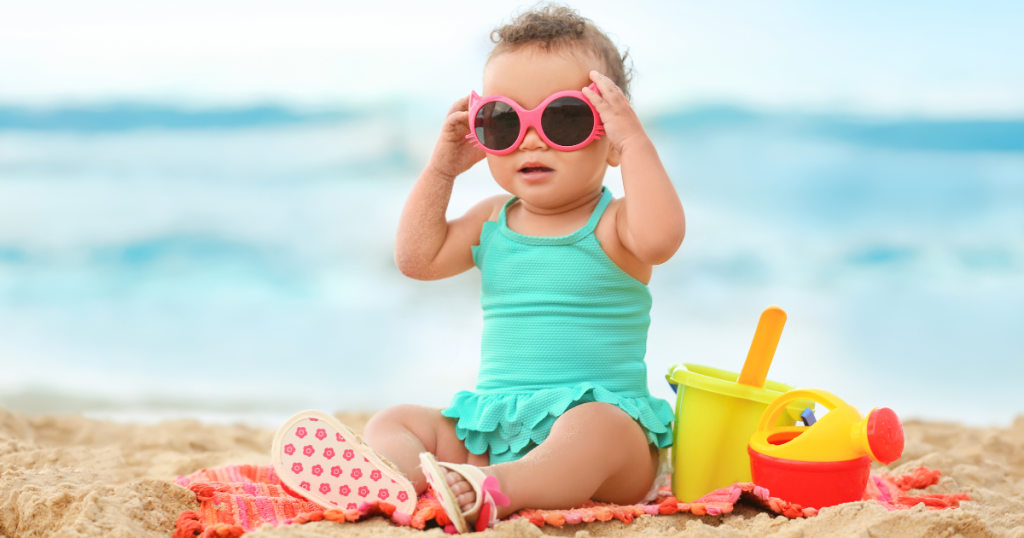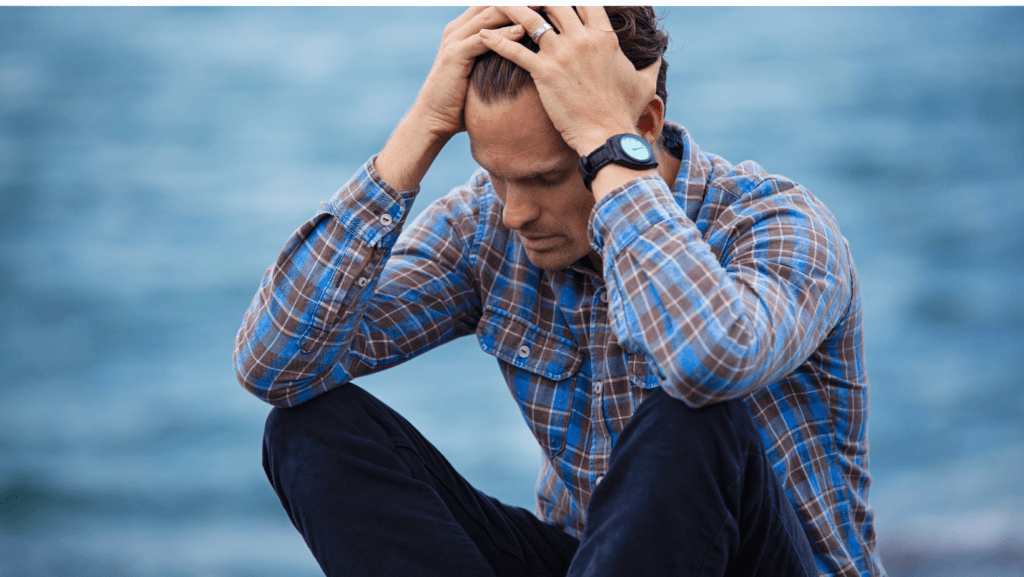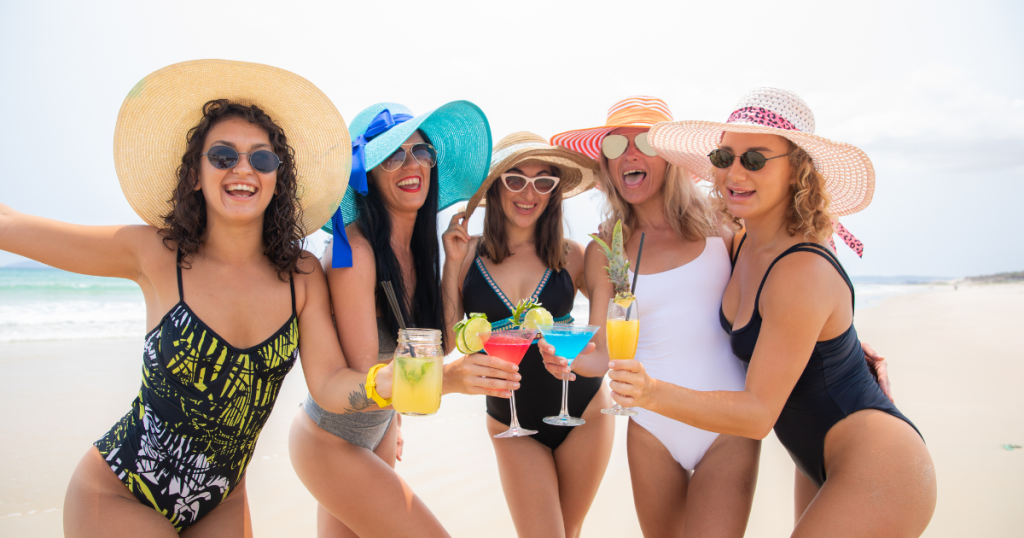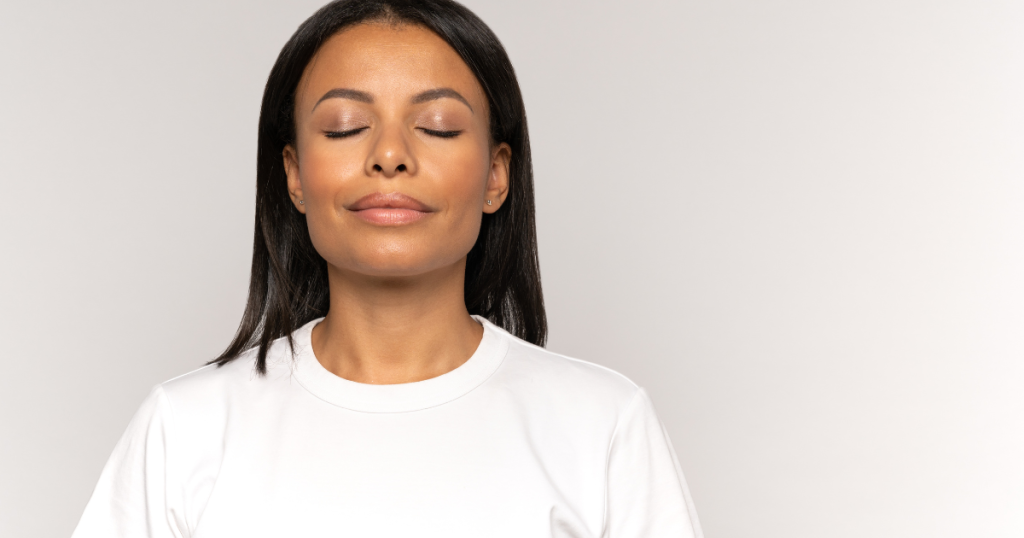Bodies are neither good nor bad. Body image, however, can’t say the same.
Good, bad, or somewhere in between, body image isn’t really about your body at all.
It’s about the thoughts, feelings, and perceptions you have about it. Positive thoughts and feelings? Good body image. Negative thoughts and feelings? Bad body image.
For most of us, unfortunately, judgment weaves itself through the center of our relationship with our bodies, usually in the form of comparison.
We compare our bodies to those in the gym, those on the beach, those on the red carpet, those on social media.
We compare consciously, unconsciously, intentionally, and unintentionally.
But we constantly…compare.
And a bad body image becomes our early default.
It wasn’t always this way, however.

And it still isn’t for some groups of people like infants and toddlers.
Think of body image as the relationship you have with your body.
Entangled in that relationship is Diet Culture, which is the primary source of body dissatisfaction, judgment, and negativity. Ground zero.
Diet Culture is the primary reason bad body image is so prevalent. It presents an unrealistic image of the body — one that 5% or fewer of women can possibly maintain.

And men aren’t immune to a bad body image, either.
You don’t have to be on a diet to be affected by Diet Culture. Most of us are so caught up in Diet Culture we don’t even realize it.

In fact, terms like “wellness” and “health” are some of Diet Culture’s favorite masks, luring you into methods that help you “fit in” and “stand out” behind a smokescreen of being “healthy.”
(I call BS!)
Dimensions
Body image is much more than simply liking or disliking your body.
A good or bad body image (or anything along that continuum) includes any of the following:
- satisfaction/dissatisfaction with your body, in part or as a whole
- perception of how your body looks
- cultural beliefs about what bodies should look like
- behaviors you deem necessary to evaluate your body (aka “body checking”)
- appreciation/lack of appreciation of your body
- understanding what your body can do
- evaluation of individual parts of your body
- feelings about your body and its parts
- estimation of body size
In the beginning
Do you know of any newborns or infants who came into the world with a bad body image?
Probably not.
That’s because a bad body image is culturally induced. It’s “taught”, modeled, learned.
Nobody is born with with a bad relationship with their body.
Poor body image does begin early on, though.
In a 2020 research review, 40 to 50 percent of first- and second-graders already dislike something about their body’s appearance.
Culture
Imagine if mirrors, selfies, and body-bullying didn’t exist. You’d most likely think of your body in terms other than appearance.
Most likely you’d be in tune with the awe and respect every body deserves.
Media and cultural portrayals affect us all. We know from studies that around 80% of U.S. women don’t like how they look, and 34% of men are dissatisfied with their bodies.
That doesn’t happen in a vacuum.
Relating to your body as a heart-beating, joy-generating miracle (the reality of what it is) would transform your relationship with yourself and others.

Wow. Just imagine! You would be so much less likely to buy into societal ideals that create and perpetuate bad body image.
You would have less (if any) resentment, shame, fear, judgment, and/or body comparisons.
They just wouldn’t be a thing.
Neutral body image offers true freedom, away from the all-consuming negative impact of a bad body image.
Fluidity
You may be tempted to think you’re all set in the body image department, even though everyday circumstances cause your body image to plummet further.
What happens to your relationship with your body when…
- your weight increases?
- someone makes a negative comment about your body?
- you compare your body to others, including social media images (hello, TikTok and Instagram)?
- your clothing feels snug?
It plummets further…and further and further…from the filtered, unreal ideals of Diet Culture.
Long-term relationship
Body image is a life-long relationship. Your body is where you live, not a problem to be solved.

Pause and think about that.
There are always deeper levels and layers to heal.
Different circumstances provide opportunities to discover new ways of understanding and living in your body.
This is actually a good thing! It means that:
- You don’t have to have everything perfectly healed in order to experience the peace of body neutrality.
- Each circumstance offers you an invitation to heal on a deeper level.
- Curiosity and discovery prevail over shame and micromanagement.
Feeling comfortable in your body is a practice, not a final destination.
Moving toward that comfort decreases the pain and suffering of a bad body image.
It may even create moments of delight in your relationship with your one-and-only body.
Consider this: You don’t have to resign yourself to Diet Culture and live a life of body-hatred.

As Ragen Chastain reminds us, “If someone suggests that you aren’t beautiful, you can consider how sad it is that they have such a limited view of beauty. You can consider how unfortunate it is that they have such an exaggerated sense of self-importance that they think you should care about what they think.”






